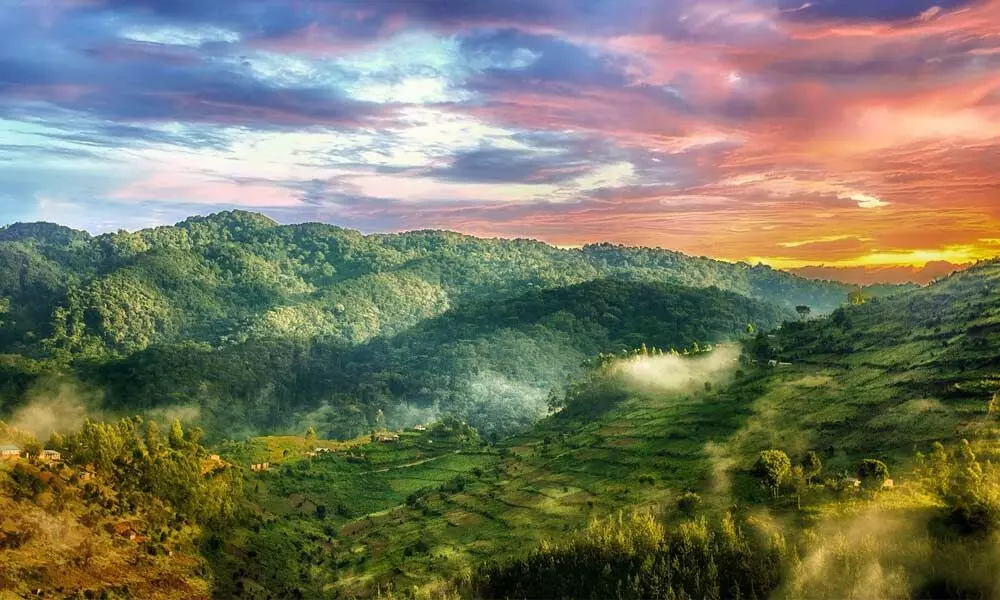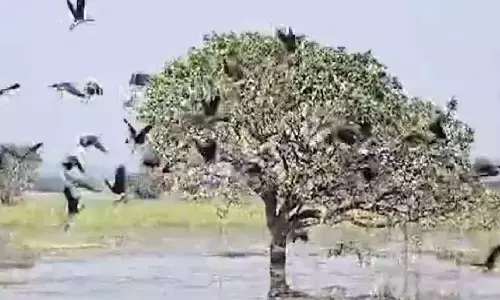Protecting the 'rights' of Nature

Protecting the ‘rights’ of Nature
The discovery of the largest onshore deposit in sub-Saharan has transformed Uganda into one of the most sought after and contentious oil frontiers
The discovery of the largest onshore deposit in sub-Saharan has transformed Uganda into one of the most sought after and contentious oil frontiers. However, the Ugandan government adopted groundbreaking environmental law formally recognising the rights of nature in the same ways that human rights are recognised. In 2019, as the scale of the oil development project took shape, the government made a paradoxical move: It adopted an environmental law that could protect the fragile habitat in which the oil project is centred. Both Uganda and Tanzania which have entered into an agreement with oil giants are now fighting to impose the rights of nature on their agreements.
The agreements may not be fully scrapped, but those exploring the oil now have to follow the law of the land to a great extent now and help preserve nature. The law formally recognises the rights of nature in the same ways that human rights are recognised and allows nature to be named as an injured party in litigation over "any infringement" of those rights. By treating forests, lakes, and other ecosystems as living beings and enshrining nature's right "to exist, persist, maintain, and regenerate," Uganda joined a growing global movement to recognize the value of the natural world as an equal party rather than a resource to be exploited - and became the first African nation to do so.
At least 14 countries have passed measures protecting rights of nature since 2008, when Ecuador added rights-based protections to its constitution. The natural places have "rights" to sue; guardianship bodies are appointed in these nations to serve as the ecosystem's human face during consultations and court hearings. This is a dramatic new framework that gives nature a voice. It is a new DNA for the legal system.
Some countries have granted personhood to unique and venerated places, including Colombia's Atrato River and New Zealand's Whanganui River, worshipped by the Indigenous Maori people. In Australia this spring, the local council in Blue Mountains, a town close to Sydney, became that country's first to embed the rights-of-nature concept into its operations. And in May, a rights-of-nature lawsuit was filed in Orange County, Florida, on behalf of several waterways under the county's "rights of nature" law that voters approved last November.
The suit argues that multiple streams and wetlands are at risk for destruction by a proposed 1,900-acre housing development. The oil fields are being developed on the ancestral lands of the Bagungu people, a farming and fishing community in western Uganda's rural Bulisa district on the shores of Lake Albert. Multiple sacred natural sites are scattered across the region and the community has watched the building of the oil project with growing unease.
The oil extracted from the UNESCO wetlands will then be pumped 900 miles through the world's longest heated pipeline to the Indian Ocean port city of Tanga, in Tanzania. The pipeline crosses critical wildlife habitats; the port is surrounded by mangroves and coral reefs. International observers estimate the project will displace thousands of farmers. The first oil export is planned for 2025. While rights of nature laws appear cutting edge, they are rooted in ancient, indigenous thought. Let us hope the African example shows the way out for the world. At least a beginning has been made in course correction despite the law being 'nunc pro tunc' - now for then move.
















